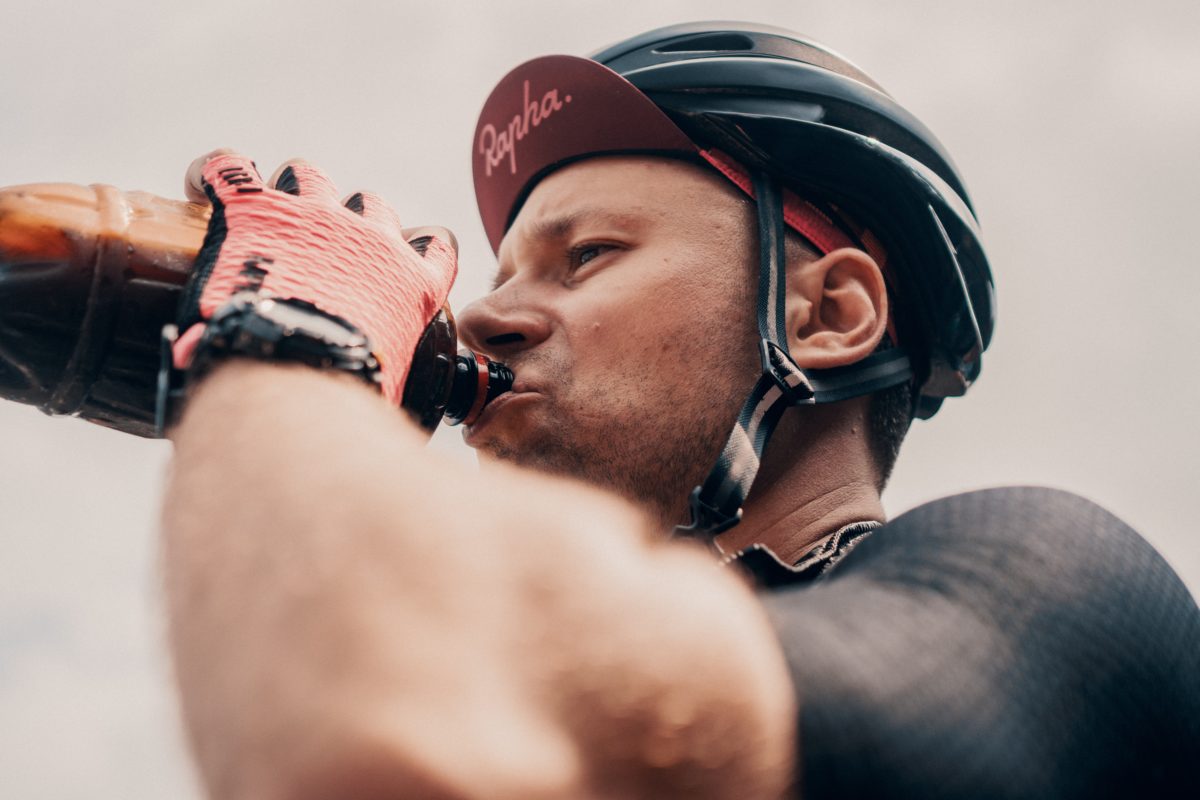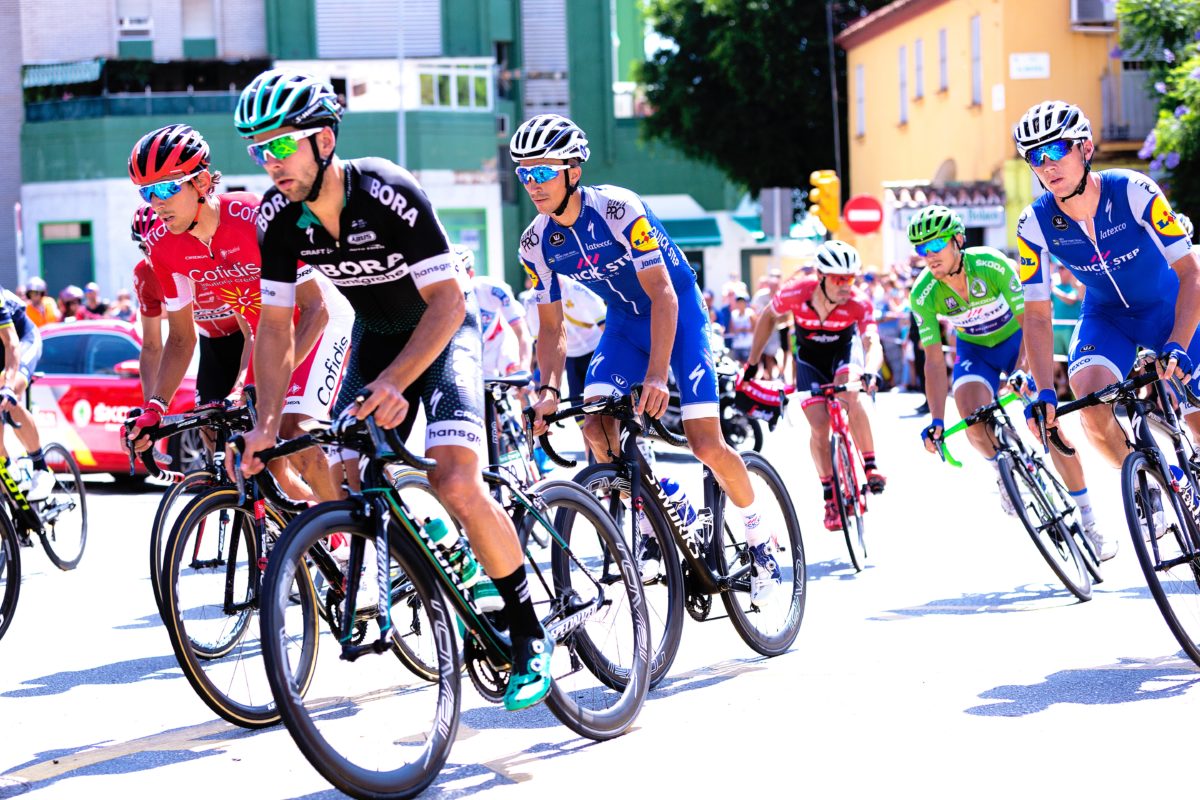
What are ketones and will they make me a better cyclist? This question seems to keep popping up in group rides and at cafe stops within the cycling fraternity recently.
Supplements are always a hot topic of conversation among performance cyclists – often cast in a controversial and cagey grey zone between doping products and whole foods. Yet many riders swear by them and as technology and training methods advance, so too does nutrition science. The latest addition to the long list of performance-enhancing supplements finding favour in the peloton are ketones.
You may have heard of Ketone Ester – they received plenty of coverage at this year’s Tour De France as it emerged about half of the 22-team peloton in the race were imbibing ketone drinks in their endless quest for performance gains. Perhaps you’ve considered incorporating them into your own ‘nutritional programme’? It’s a bit complicated, especially if you are not a US resident – more on that in a second – but science is building behind ketones.
What are ketones?
Ketones are in essence an emergency energy source – they are made by the liver when the body is running dry of carbohydrates. This is not usually regarded as a good thing as it means the body has gone into a ketogenic state – a kind of ‘state of emergency’ – to maintain energy supply. That’s the general wisdom but it hasn’t stopped the rise of ketogenic diets which restrict carbohydrate intake, promote fat burning and provoke the liver into ketone production. This diet is typically pursued by people seeking to manage their weight.
Read our post on how to calculate your ideal race weight here.
The jury is out on the merits of such regimes, but here we are focusing on something else: ketone esters that are extracted from a source like corn and introduced to the body – hence the term ‘exogenous supplementation’.
Exogenous ketone supplementation
Quite a few animal and human studies have found exogenous ketone ester supplementation can promote efficient fat burning in stressed situations, while preserving glycogen stores, yielding potential performance and recovery gains. Obviously for endurance sports like cycling and distance running, any nutritional intervention that can help the body conserve glycogen in those make-or-break, on-the-limit situations is going to attract a lot of interest. And so it has.
One recent study in the Journal of Physiology found trained athletes could take 15% more workload with exogenous ketone ester supplementation. Another 2016 study in Cell Metabolism found a group of professional or semi-professional cyclists rode on average 400m further than a group consuming pure carbohydrates over a 30 minute time trial – roughly a 2% improvement, significant in elite cycling terms.
Research indicates a 65ml bottle containing 25g of ketones can elevate bodily ketone levels for 4-6 hours.

Ketones in the pro peloton
Not all pro cycling teams have come out about their ketone use but Geoffrey Woo, CEO of US-based ketone maker, HVMN, told The Draft two of the most successful teams at the Tour this year – the Dutch team Jumbo-Visma and Belgium’s Deceuninck-QuickStep – had riders drinking HVMN’s bitter little ketone ester bottles before and during race stages.
(Scribe’s note: I’ve tried them – they share the bitterness of the foulest medicine. But hey, performance gains require sacrifice right? Woo describes the concoction as a “stiff cocktail”, adding his lab lords are working hard to tweak the formulation and make it a tad easier on the tongue and tonsils.)
Jumbo-Visma team manager Richard Plugge opened up about his team’s use of ketones during the Tour, telling Dutch newspaper De Telegraaf: “Ketones are a dietary supplement. You can use them just like vitamins. The substance is not on the prohibited list, and it’s also known that other teams use ketones.”
Ketone researcher professor Peter Hespel, head of exercise physiology at the Catholic University of Leuven in Belgium, said ketone ester drinks were “probably a piece of the puzzle” in the success of Deceuninck-QuickStep.
Ketone questions
But not everyone is backing the nascent nutrient – just yet anyway. While not banned by the World Anti-Doping Agency (WADA) some critics have likened it to a doping product. Cycling’s global governing body, the Union Cycliste International (UCI), has said it is monitoring ketone use. Other teams want to see more safety and efficacy data from the research community.
French team Arkea-Samsic team doctor, Jean Jacques Menuet, told AFP. “I don’t want to receive a letter in 10 years from a rider telling me that his liver is ruined.”
Mark Tallon, PhD, managing director of UK firm, Legal Foods, a nutritionist and someone who has himself competed in Ironman events, says more efficacy data is needed.
“There may be benefits in glycogen sparing but if current nutritional strategies like carb intake address this then we need to see data that ketones outstrip carbohydrates as a recovery aid,” he said.
“Over the distance and intensities of the Tour de France I am not a believer at this time based on the available data that supplemental ketones are more effective than carbs for recovery and or performance.”
Legal status
The fact ketone esters have only been on-sale for a couple of years and are only approved for sale in one country – the US – adds to their mystique. Then consider ketones nonetheless being spotted in the pro peloton since at least 2015 – often accompanied by bizarre denials and secrecy as to where the products were being sourced from.
HVMN’s Oxford-based ketone ester supplier, TDeltaS, lodged an EU Novel Foods application several years ago, but the EU’s food science agency has yet to hand in its verdict on that dossier, and so ketone esters remain banned across the EU’s 28 member states.
So buying ketones becomes an issue given they can only legally ship within the US. Frank Llosa, the owner of another US-based ketones maker, KetoneAid, told us teams and individuals often purchased products through third parties based in the US and then had them couriered to Europe or elsewhere.
Wallets out…
Adding to that logistical hurdle is their price. One 65ml HVMN bottle containing 25g of ketone esters costs about £25. Hefty, although the manufacturers advise a single bottle can serve multiple occasions and deliver performance gains depending on the individual, timing of the dose, other nutritional inputs and the type of activity being engaged in.
TDeltaS says an impending production scale-up will significantly lower the cost of its corn-sourced ketone ester, by as much as half.
Woo is looking forward to expanded distribution in the US outside its own website.
“Selling in mainstream outlets like supermarkets and pharmacies is our goal,” he said. “We expect people will be choosing ketone drinks over cola in five years.”
He said there are three fundamental demographics buying HVMN: professional and serious athletes; body toners and health and wellness adherents.
Emerging research has indicated nootropic benefits, and Woo said many HVMN buyers used the products in work environments to boost cognitive performance.